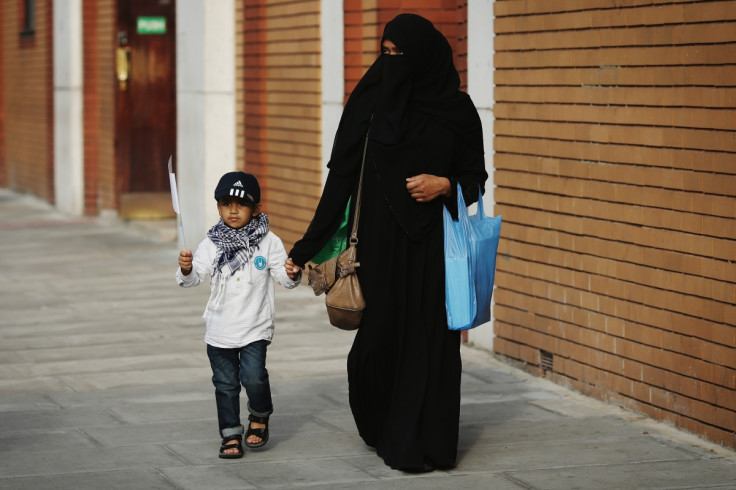Paris attacks: Hate crimes against British Muslims soar by 300% in one week

Muslims living in Britain were victims of more than 100 hate crimes in the week since the Paris attacks. Islamic State (Isis) terrorists killed 130 people in the French capital on 13 November, after which the number of Islamophobic incidents in Britain rose by more than 300%.
The figures were compiled by Tell Mama, a project that records anti-Muslim incidents in the UK. According to the figures, Muslim women and girls have been the target of most UK hate crimes, particularly those aged 14 to 45 and dressed in traditional Islamic attire. Perpetrators of the attacks are said to be made up largely of white males aged 15 to 35.
On the subject of women and girls making up most of the targets, the report said: "This is concerning since the cases show that women who wear the hijabs are the ones being targeted for general abuse and threats."
The findings revealed that 34 of the victims were women wearing a hijab, while eight of them were children. The report said that a large number of hate crimes took place in public spaces, such as on buses and trains. It suggested that young children heard abusive comments directed at their mothers but that few incidents led to members of the public coming forward to defend them.
"Many of the victims have suggested that no one came to their assistance or even consoled them, meaning that they felt victimised, embarrassed, alone and angry about what had taken place against them," The report said.
The figures from Tell Mama came just one day after Britain's largest Muslim group warned that the Conservative government's cuts to UK police forces would risk the fight against terrorism. The Muslim Council of Britain (MCB) expressed fears that police cuts would result in a reduced number of neighbourhood officers, which they believed were crucial for building relationships between communities.
"It is difficult to see how new cuts will not make this situation worse," said Miqdaad Versi, security and counter-terrorism representative for MCB. "To develop a more effective policy in combatting terrorism that continues to blight our society, it is key for the police to engage, consult and build trust with communities as partners."
However, chancellor George Osborne defended his police cuts on Sunday, 22 November, saying that the cuts would allow them to increase the UK's counter-terrorism budget by 30%.
© Copyright IBTimes 2025. All rights reserved.






















